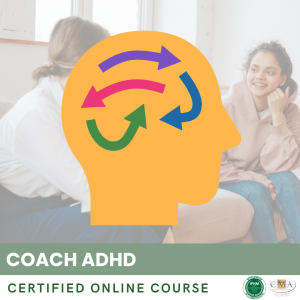Sub-module 1.3 – Key competences of an effective GRIEF COACH
To be an effective GRIEF COACH and offer quality support to bereaved individuals, it is crucial to develop and master certain key competences. These skills are both relational, emotional, and technical, and they enable the GRIEF COACH to create a safe and healing-friendly space.
One of the core competencies of the GRIEF COACH is active and empathetic listening. This involves being fully present for the client, giving them your full attention and allowing them to express themselves without judgment. For example, when a client recounts a painful memory related to the loss of a loved one, the GRIEF COACH must be capable of listening with compassion, reflecting his emotions and showing him that he understands his suffering. Active listening also requires knowing how to ask open-ended and relevant questions, inviting the client to deepen their reflection and to explore their emotions.
Another essential skill is the ability to create a strong therapeutic alliance with the client. This involves establishing a relationship of trust, respect, and collaboration, where the client feels safe to share their experience and their emotions. For example, the GRIEF COACH can demonstrate his commitment to the client by being reliable, punctual, and attentive to their needs. The therapeutic alliance is also based on the GRIEF COACH’s ability to adapt to the client’s pace and communication style, and to find a balance between support and challenge.
Mastery of the tools and techniques specific to grief coaching is also a key competence. This can include knowledge of different models and theories of grief, as well as the mastery of techniques such as active listening, questioning, paraphrasing, visualization, or mindfulness. For example, the GRIEF COACH can use the technique of the “letter to the departed person” to help a client express their feelings and find a form of closure. Mastery of the tools and techniques enables the GRIEF COACH to offer structured and tailored support to each client.
Emotional intelligence is another crucial competence for the GRIEF COACH. This involves being aware of their own emotions and those of the client, knowing how to welcome them with kindness, and how to regulate them appropriately. For example, if a client expresses intense anger towards the departed person, the GRIEF COACH must be capable of recognizing and managing his own emotional reaction, while helping the client express and understand his anger. Emotional intelligence allows the GRIEF COACH to create an emotionally safe space and model healthy emotion management.
Lastly, the ability to take care of oneself and maintain a personal balance is an essential skill for the GRIEF COACH. Supporting bereaved individuals can be emotionally draining, and it is crucial that the GRIEF COACH look after their own mental and emotional health. This can involve regularly practicing self-care activities such as meditation, sport or supervision, and knowing how to set healthy boundaries in the support relationship. Taking care of oneself allows the GRIEF COACH to be fully present and available for his clients, without risking professional burnout.
By cultivating these key competences, the GRIEF COACH can offer quality support to bereaved individuals, by creating a safe, empathetic space conducive to healing. By combining active listening, the therapeutic alliance, the mastery of specific tools, emotional intelligence, and self-care, the GRIEF COACH can have a profound and lasting impact on the emotional well-being of the people he supports.
Key takeaways:
– Active and empathetic listening is a fundamental skill for the GRIEF COACH. It involves being fully present, without judgement and reflecting the client’s emotions.
– Establishing a strong therapeutic alliance based on trust, respect and collaboration is essential. The GRIEF COACH need to adapt to the client’s pace and communication style.
– Mastery of tools and techniques specific to grief coaching, such as theoretical models, active listening, questioning, or visualization, allows for structured and personalized support.
– Emotional intelligence is crucial for recognizing and managing ones own emotions and those of the client, thus creating an emotionally safe space.
– Self-care and maintaining a personal balance is vital for the GRIEF COACH, in order to be fully available to their clients and avoid professional burnout.
In summary, an effective GRIEF COACH combines empathetic listening, the therapeutic alliance, mastery of specific tools, emotional intelligence, and self-care to offer quality support to bereaved individuals.
👉 To download docx (Editable) file click here : Click here
👉 To download PDF file click here : Click here
👉 To download MP3 file click here : Click here







